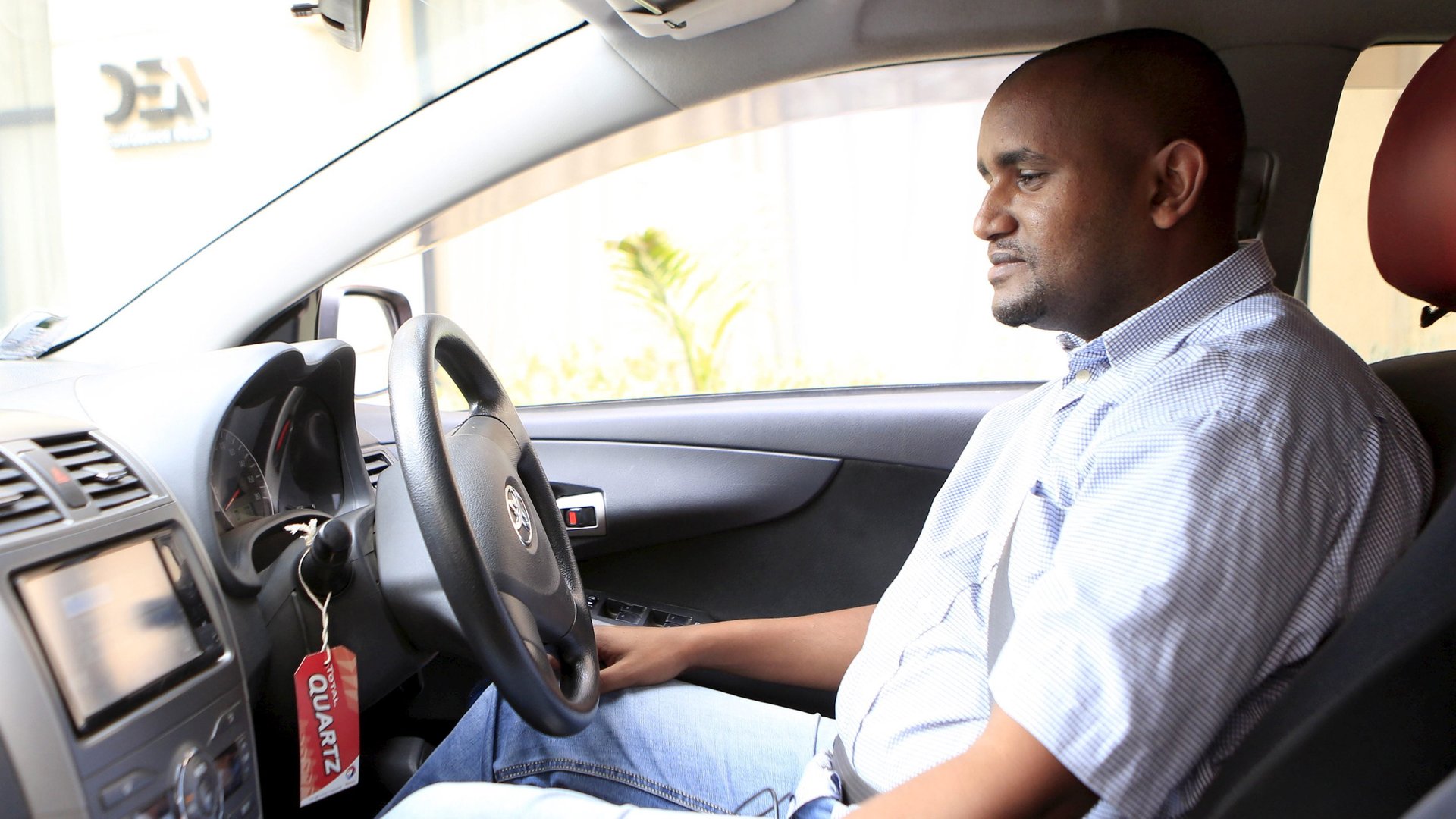Uber drivers in Kenya will take selfies to keep riders safe
Uber is rolling out a new feature that would help protect both riders and drivers in Kenya from the risks of fraud and theft. The new safety feature asks drivers to “periodically” take selfies in the Uber app before they accept rides. If the photo of the driver doesn’t match the one registered to the account, then that account is blocked.


Uber is rolling out a new feature that would help protect both riders and drivers in Kenya from the risks of fraud and theft. The new safety feature asks drivers to “periodically” take selfies in the Uber app before they accept rides. If the photo of the driver doesn’t match the one registered to the account, then that account is blocked.
Uber says the real-time identification check helps drivers protect their accounts from being compromised. It also “protects riders by building another layer of accountability into the app to ensure the right person is behind the wheel,” the company said in an email statement. The tests could tentatively prevent drivers from giving their phones to friends or colleagues who will drive on their behalf when they are not on duty.
The California-based ride-sharing takes advantage of its rapid global expansion to try out new products that it eventually takes to its biggest city markets in the United States. Drivers in Kenya and Nigeria were among the first worldwide to accept cash.
This is not the first time Uber has introduced live face checks for its service. Last year, the company released a facial recognition test for its drivers across China. In March, the ride-sharing service also asked its drivers in India to take selfies to improve security. The ride-sharing company has faced safety concerns over the last few years—especially after one of its drivers killed allegedly killed six people in a rampage in Kalamazoo, Michigan while picking passengers in between rides. Users have also been urging the company to put in place an emergency hotline to respond to incidents.
Since its entry into the Kenyan market in 2015, Uber has faced numerous challenges not the least from drivers who have protested from the reduction in prices. Stories about Uber drivers allegedly attacking passengers have also been reported in the media. Drivers have also been ambushed and injured in the past, with some even having their cars burnt by rival taxi drivers.
Uber says the selfie feature is currently being introduced in phases in Kenya. Little Cab, a competitor of Uber in Kenya, also enforced face recognition for its drivers in May.